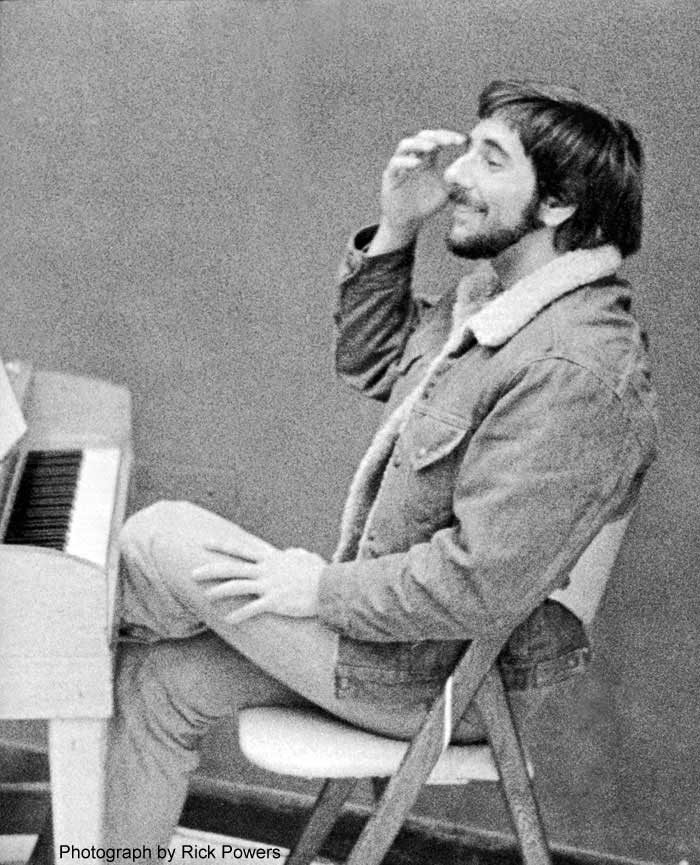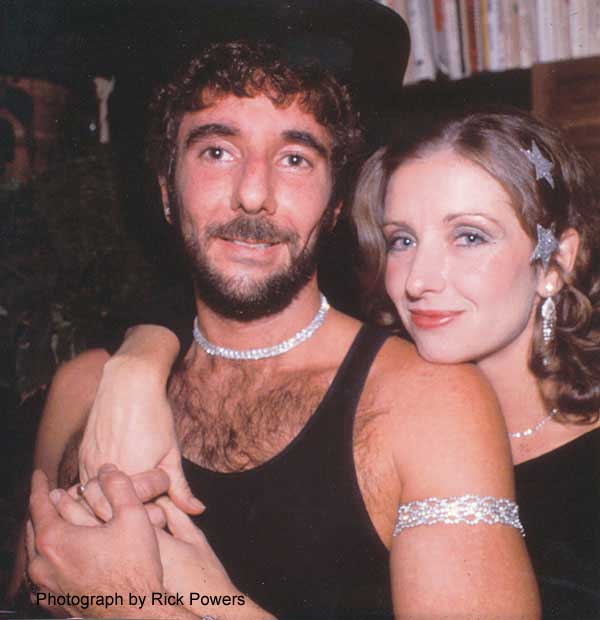
Frank Joseph DiGiacomo (De-Jah-co-mo) was born on December 18, 1944. He was lucky enough to be raised in a large, nurturing Italian family in Nutley, New Jersey. At the tender age of 6, unknown to his parents, he took a test and won a competition for children with natural musical ability. The prize was free piano lessons, which the young Frank used to great advantage. His facility was remarkable, and as he grew he performed frequently, played many recitals, school musicals and community functions. He became the principal pianist in his school, accompanying all the school’s choirs. He also worked with various individual vocal soloists. Frank’s piano teachers wanted him to pursue a career as a concert pianist, but the young talent knew he wanted to write music and that the piano was just a means to that end. We have many sketches for his youthful compositions, which have not yet been found in completed form.
During his childhood a favorite uncle, Dr. Joseph Epolito, a very knowledgeable drama professor, and an aunt, Angel Maluda, among others, introduced Frank to the grand vocal wonders of the Metropolitan Opera and the bright tempo of Broadway, just across the river in New York City. This regular exposure to opera and the musical theater excited the young composer and he decided to write an opera at the age of 7! Aida was the first opera recording that he owned, so his opera was written to take place in Egypt and was in Italian. Until he was 14, his early works were written in Italian, a language and culture that was deeply influential in his life. We have only page fragments of a few of these early works.
Summers at the Jersey shore included his eager exploration of a great uncle’s excellent collection of operatic recordings, and the older man’s extensive reminisences of the arts of singing and opera. We can’t underestimate the value those conversations had in forming the discerning and discriminating artist he would become.
Frank graduated from high school in the Spring of 1962, and having won a scholarship from Syracuse University, entered the Composition program studying with Dr. Earl George and Franklin Morris, from 1962 through 1966, and returning to finish in 1968. He studied piano with Felice Takakjian-Bedrossian and Veronica Rohan Sage. The wider environment of academe sharpened his considerable skills and he made life-long artistic relationships there which helped shape his remarkable work.
After graduating with a Bachelor of Music degree in 1968, Frank taught in both private and public schools. He had great success with using music as a break-through tool for blind emotionally disturbed children. His native charm, good humor and acute mind made him an excellent teacher for special education in the public schools, and he was a very positive contributor, saving and repairing many individual lives.
In 1969 he married Karen Marie Lawrence who was one of his colleagues at the Fairmount Psychiatric Center for emotionally disturbed blind children. Later, when the Center closed, they adopted one of the blind or phans, Linda Monroe, as their daughter, thus saving her from being lost in an impersonal welfare system. Frank was instrumental in using Linda’s aptitude for music to help free her from the damage of her harsh childhood. In April 1971 the couple was blessed with the birth of their son Joshua.
phans, Linda Monroe, as their daughter, thus saving her from being lost in an impersonal welfare system. Frank was instrumental in using Linda’s aptitude for music to help free her from the damage of her harsh childhood. In April 1971 the couple was blessed with the birth of their son Joshua.
Throughout this period he composed continually. His broad experience of life and his compassionate understanding of the human condition is evident in the texts he selected or wrote himself to set to music, and in the wonderful way those words are illuminated by his music. That is something quite remarkable in itself.
Equally important as his musical voice, was the manner in which Frank chose to lead his life. His life informed his music and his music informed his life. Early in his life, the concept of living in an extended family, which came from his love of the story of Jesus and his disciples, was realized in a commitment to a chosen family of friends, who shared one home for over 35 years. Frank felt that living in community gave opportunity for greater personal growth on all levels of experience. Together family members cooperatively built resources of music, books, film and art, which expanded the perspectives of all who lived with him and the many friends who visited. The members of Frank’s extended family voluntarily provided the patronage which allowed him to write music full time. Time was spent sharing meals, listening to music, watching movies and hosting famous dance parties. There was plenty of laughter and lively discussion. The acts of daily living, working, keeping a household, raising three children, developing and learning from personal interactions, all contributed to the rich home life he was responsible for envisioning and sustaining. For a good look into this dimension of the composer, you are encouraged to view the documentary made for television at the bottom of the home page, on YouTube.
In the middle 1970s, a group of friends made efforts to produce his work and expose it to the wider public it deserves. His opera Beauty and the Beast was first presented in 1974 and professionally premiered in 1976. A Journey to Bethlehem - A Christmas Opera to be Performed by Young People was premiered in 1977 and recently revived in a 2008 production. His powerful operas The Trojan Women and The Dybbuk, have not yet been premiered. There were also four public vocal recitals of his compositions, in 1975, 1976, 1977 and 1979, all accompanied by Mr. DiGiacomo.
The difficulty, frustrations and personal expense of performance with live musicians plus the lack of commitment he experienced with professional musical managements, forced Frank to devote himself to the electronic realization of his musical ideas. These creations were liberating, freeing his expression from the variabilities of live performance. He continued to work in that medium until his death.
Throughout his life, he enjoyed time spent listening to and discussing music, film, art and life, as well as counseling, loving, growing, and helping his many devoted friends and extended family, forgoing fame and fortune.
Following a prolonged illness, Frank DiGiacomo was redeemed on October 25, 2004 at his home in Cazenovia, New York.